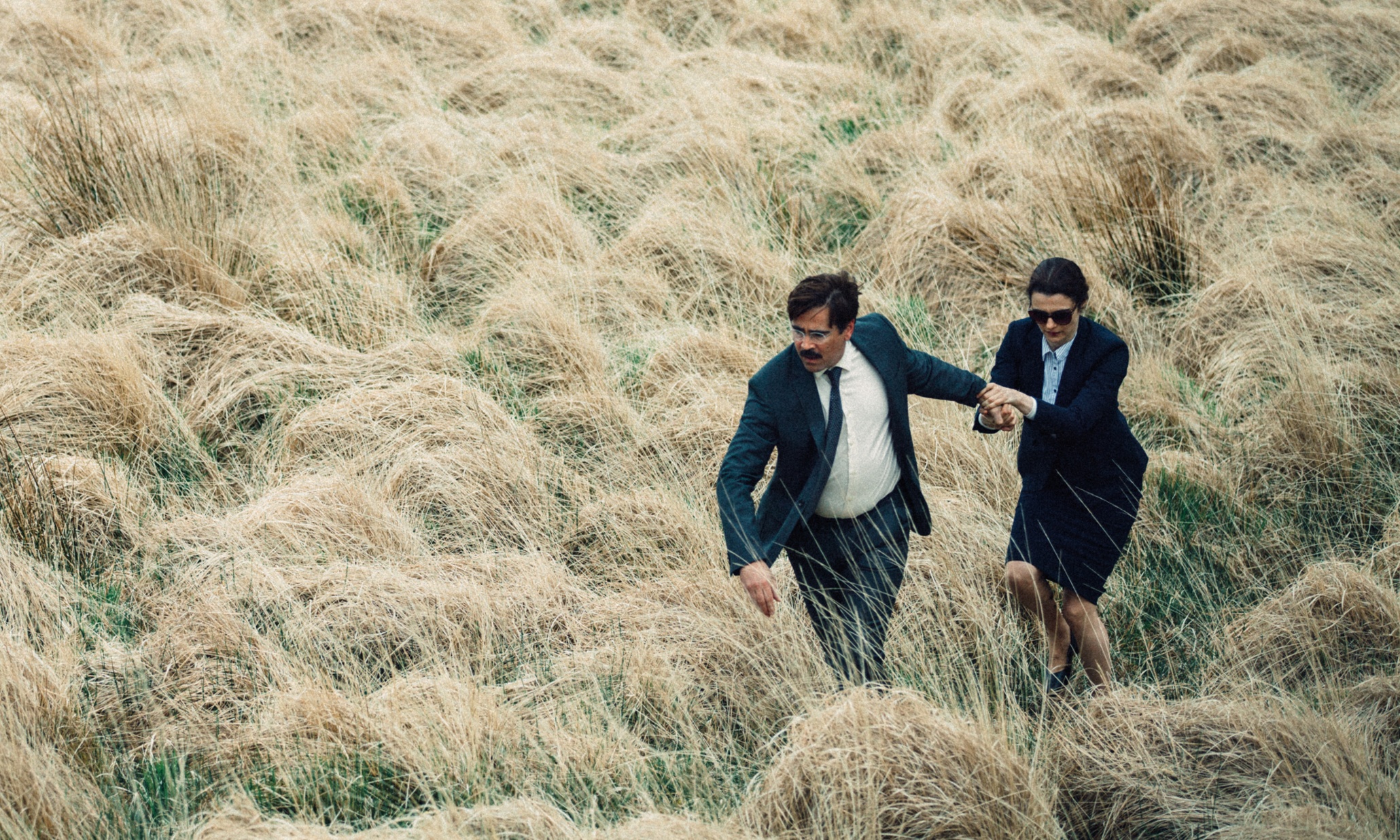
MPAA Rating: R | Rating: ★★★½
Release year: 2016
Genre: Drama, Horror, Romance, Satire Director: Yorgos Lanthimos
The Lobster is one of the best horror films of 2016. Darkly satirical and imaginative in its cultural critiques, filmmaker Yorgos Lanthimos examines and eviscerates modern notions of romance through his bizarre dystopian vision. Tonally akin to a mashup between Wes Anderson and Michael Haneke–with a dash of David Lynch–The Lobster is both amusing and disturbing, totally otherworldly while remaining familiar and accessible.
The film’s premise is fairly simple: In a not-so-distant future (though the film’s aesthetic and art design feels pulled from the past, giving it a nostalgic quality), single people are taken to a hotel and given 45 days to find a compatible romantic partner, or they are transformed into the animal of their choice and set loose in the surrounding woods. The film centers on David (Colin Farrell), whose recent divorce puts him in the hotel, looking for a suitable love interest. Farrell is wonderfully awkward and deadpan in his performance, and the rest of the supporting cast is brilliant in their respective roles, particularly Ben Whishaw, John C. Reilly, Rachel Weisz, and Lanthimos’ wife and collaborator, Ariane Labed.
Characters are not given names, and seem defined by their faults or flaws more than their personalities or strengths. (The credits list people as “short-sighted woman” or “bald man”). One scene depicts hotel guests sharing their defining characteristics, with an elaborate story about a limp stemming from a supporting character, while the description of a beautiful smile is cut off, the character never seen again. It’s indicative of the film’s exploration of romantic rapport. Nose bleeds, lisps, short-sightedness–these traits become the foundation for romantic compatibility in this world. You have nose bleeds? Wait. *I* have nose bleeds! True love, or at least its appearance, blooms. It’s like a twisted version of Tinder or online dating services, where one lists characteristics and preferences in order to find a suitable match. Perhaps this sort of compatibility is just as arbitrary–a shared interested in kayaking is about as solid of a foundation for a marriage as mutual bad eyesight. Neither addresses values or vocation; it’s simply looking for something, anything, in common and hoping for the best.
The Lobster is a series of contrasts and comparisons. Singleness vs. marriage. The city vs. the woods. Violence vs. mercy. Lust vs. love. The film is structured between two central locations: the hotel and the woods. The first half (the hotel) is our introduction to the institutions and practices of this world, which are both darkly funny and horrifying. The hotel staff give seminars on why two are better than one, showing how a partner can save you from rape or choking on your dinner, all with deadpan expressions that make the awkwardness even more hilarious. The second half trades some of its humor for a critique of this world’s institutions, as David joins a band of single people devoted to being loners in this forced-romance reality. Issues arise when it becomes clear that neither path will lead to freedom–the idolization of both marriage and singleness prove to be destructive, ultimately leading to violence and tragedy.
Lanthimos seems interested in exploring the institutions of our society–family and parenthood in Dogtooth, marriage and romance in The Lobster–through his twisted lens of satire. Both films are uncomfortable and disturbing, partly because they feel so completely weird and grotesque, partly because one imagines that our culture is not too far from these dystopian depictions. The Lobster is certainly a more accessible film than Dogtooth–I haven’t seen Lanthimos’ film Alps–but it’s certainly not for everyone. The grey and sepia tones, the isolated hotel setting, the wandering animals, the brief moments of intense violence, and the frenetic orchestral score all make me wonder if Lanthimos hasn’t created a horror film of sorts. Some scenes in the hotel remind me of The Shining; others reminded me of The Grand Budapest Hotel. If this is a horror romantic-comedy, it’s the only one of its kind.
It’s unclear to me whether The Lobster is pro- or anti-marriage. Its final scene is either a cringe-filled moment of despair and desolation, or a beautiful picture of self-sacrifice for the sake of true love. It’s certainly a film worth pondering and discussing, even if its tone is unsettling. And for the record: I’d be a dolphin. Intelligent, playful, communal, athletic, and adorable. Yep. A dolphin it is.
IMDB Listing: http://www.imdb.com/title/tt3464902/